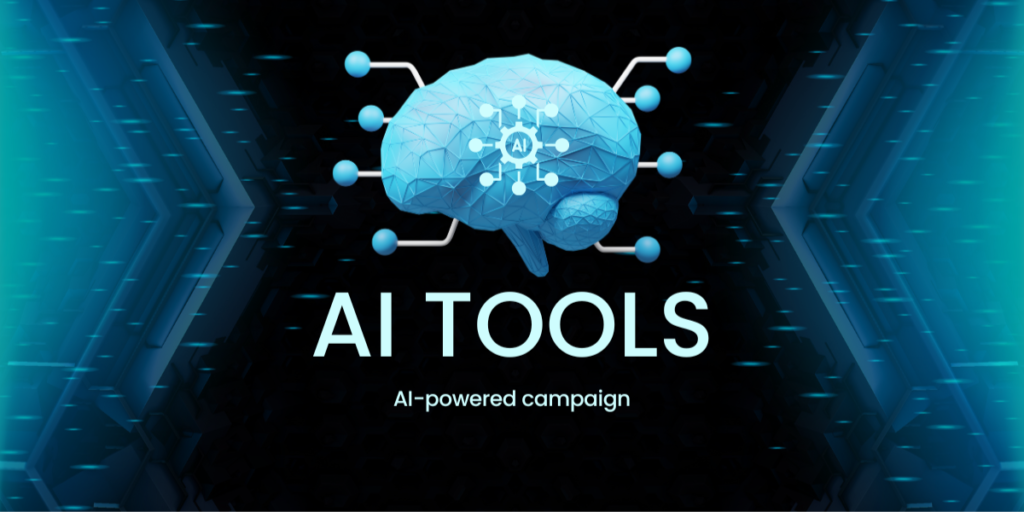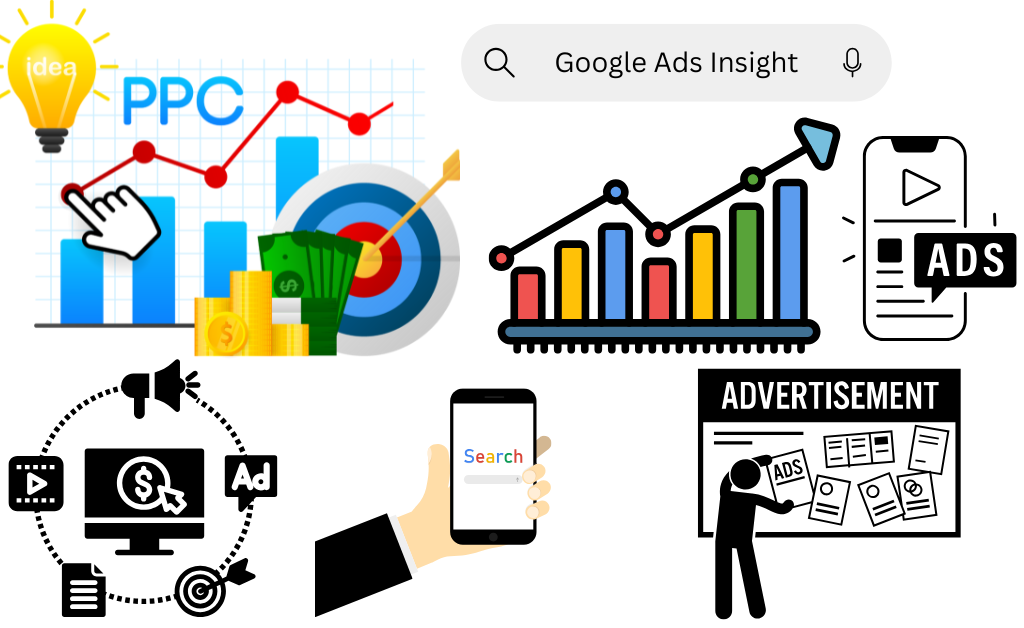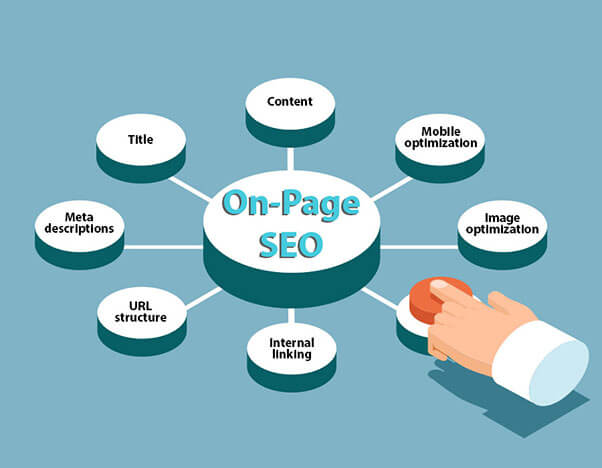November 4, 2024
Artificial intelligence (AI) is revolutionizing the way businesses operate, and Google Ads is at the forefront of this transformation. As AI technology continues to evolve, it offers innovative solutions to optimize advertising strategies. At DMEXCO 2024, Google announced new Generative AI Tools and enhanced controls for AI-powered campaigns, marking a pivotal moment in the digital marketing landscape. These updates aim to provide advertisers with more detailed insights, greater customization, and enhanced flexibility, ensuring businesses can tailor their campaigns for the best possible return on investment (ROI).
Here’s an in-depth look at the top five new generative AI tools and controls that will help streamline your AI-powered Google Ads campaigns, driving better results and higher efficiency:

Show Summary
Enhanced Creative Control with Generative AI
Customizable Brand Guidelines for Consistent Campaigns
Better Insights and Optimization for Performance Max
More Control Over Campaigns with Negative Keywords and Omnichannel Bidding
Conclusion
Gemini Models Expanding Language Capabilities for Better Search Campaigns
Google’s conversational AI in Search campaigns has already demonstrated outstanding results. Small businesses using these tools have reported a remarkable 63% increase in publishing ads with ‘Good’ or ‘Excellent’ Ad Strength. This success is largely due to the power of AI in helping advertisers create more effective campaigns with minimal effort.
Now, the new generative AI tools, powered by Google’s Gemini models, are expanding to include support for additional languages, such as German, French, and Spanish. This enhancement allows businesses to connect with a broader range of customers across different regions. By using AI-generated headlines and descriptions optimized for local languages and markets, advertisers can target their audiences more effectively. This language expansion is a game changer, especially for businesses aiming to grow in non-English speaking markets, offering them the ability to reach new demographics with ease and precision.
Enhanced Creative Control with Generative AI

One of the most significant advantages of AI is its ability to fuel creativity in advertising campaigns. Google’s Performance Max, a fully AI-powered campaign type, continues to deliver higher returns for advertisers. The platform leverages AI to optimize budget allocation across Google’s full range of channels, from Search to YouTube, delivering results that can exceed expectations.
With the introduction of new generative AI tools, advertisers now have more creative flexibility across all campaign types. For instance, businesses can directly edit images within Search, Demand Gen, App, and Display campaigns, ensuring their visuals are perfectly tailored to each platform. This feature is particularly useful for businesses with diverse product lines or those targeting multiple regions, as it allows for seamless adaptation of creative assets.
Moreover, these tools offer expanded language support for ad copy and image generation, helping businesses enhance their assets across multiple channels and global markets. The ability to generate customized and localized creatives in different languages significantly reduces the time and effort required to run international campaigns, making it easier for businesses to maintain consistent branding across the board.
Customizable Brand Guidelines for Consistent Campaigns
Maintaining a consistent brand identity is crucial in today’s competitive digital environment. With the latest updates to Google Ads, advertisers now have even more control over their creative assets. Businesses can define and upload specific brand elements, such as fonts, colors, and logos, to ensure visual consistency across all ad formats and platforms. This feature ensures that all campaign creatives align with the business’s overall brand identity, regardless of the platform or audience.
In addition, generative AI tools now allow advertisers to generate images that align with their brand’s aesthetic by providing reference images to the AI. This means that the AI can create new visuals that match the company’s look and feel, reducing the need for manual creative development.
For those using Demand Gen campaigns, the ability to pin specific video assets ensures that key visuals appear exactly where they will have the most impact. This customization allows businesses to highlight their best-performing creatives and ensure their most critical messages are delivered to the right audiences at the right times.
Better Insights and Optimization for Performance Max
Creating high-performing campaigns requires a deep understanding of what works and what doesn’t. To help businesses achieve this, Google’s Performance Max campaigns are now equipped with even deeper insights and reporting tools. Advertisers can access detailed conversion metrics for each asset within a campaign, giving them a clearer picture of how each creative element contributes to overall success.
Additionally, new asset coverage reports help businesses identify underperforming areas and provide actionable recommendations for improvement. For example, if a particular asset group is underperforming, the platform may suggest adding more long headlines or additional images to enhance performance.
Another valuable update is the introduction of impression share reporting, which gives advertisers insight into how their campaigns are competing in the marketplace. This feature provides a clearer view of how often their ads are being shown compared to their competitors, allowing businesses to make more informed decisions about budget allocation and bid strategies.

More Control Over Campaigns with Negative Keywords and Omnichannel Bidding
One of the most highly requested features, campaign-level negative keywords, is finally being introduced to Performance Max. This new control gives advertisers the ability to ensure that their ads don’t appear for irrelevant or undesirable search terms, allowing for more targeted campaigns. Negative keywords are a powerful tool for refining ad targeting and ensuring that campaigns only reach the most relevant audiences.
Additionally, omnichannel bidding is being introduced to help businesses maximize conversions both online and in-store. This feature allows businesses to optimize their bids across multiple platforms and conversion points, ensuring that they can capture valuable leads no matter where they originate. By using omnichannel bidding, businesses can achieve a more integrated and efficient approach to their advertising strategy.
Conclusion
These new generative AI tools and updates from Google Ads are transforming the way businesses approach digital advertising. By providing more control, enhanced insights, and greater creative flexibility, these tools allow businesses to streamline their advertising efforts and drive better performance and ROI. Whether you’re looking to expand into new markets, refine your creative assets, or gain deeper insights into campaign performance, Google’s latest AI-powered features offer everything you need to succeed in the digital advertising space.
Prem Jasuja Tweet
FAQ
What are generative AI tools, and how do they benefit my Google Ads campaigns?
Generative AI tools in Google Ads help automate and optimize various aspects of campaign creation, including generating ad copy, images, and customizing creative elements to better align with your brand.
Can generative AI improve campaign performance?
Yes, businesses using Google Ads’ generative AI tools have seen significant improvements, such as higher Ad Strength ratings and increased ROI.
How can I use negative keywords in Performance Max?
Negative keywords help ensure your ads don’t appear for certain search terms, giving you more control over your campaigns and allowing you to target more relevant audiences.
Recent Posts
- Protect Your Business Essential Steps to Combat Phishing Attack on Facebook November 4, 2024
- Boost Your Business with Messaging New Features and Conversions API November 4, 2024
- Transform Your Campaigns with Generative AI Tools for Better Results November 4, 2024
- Top Five Tech Tools for Streamlining Operations September 25, 2024
- Emerging Trends in the Future of Digital Marketing for 2024 September 24, 2024




